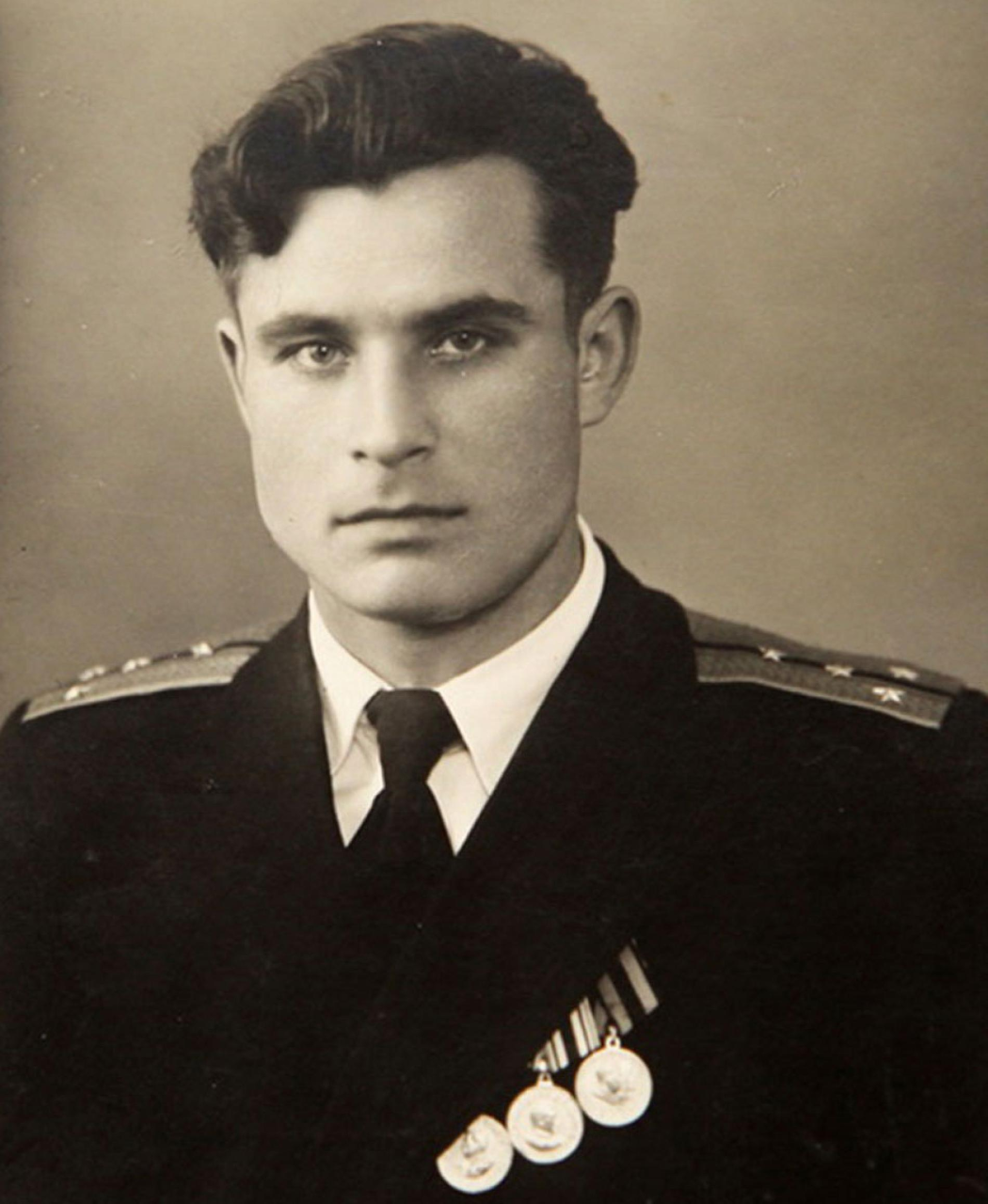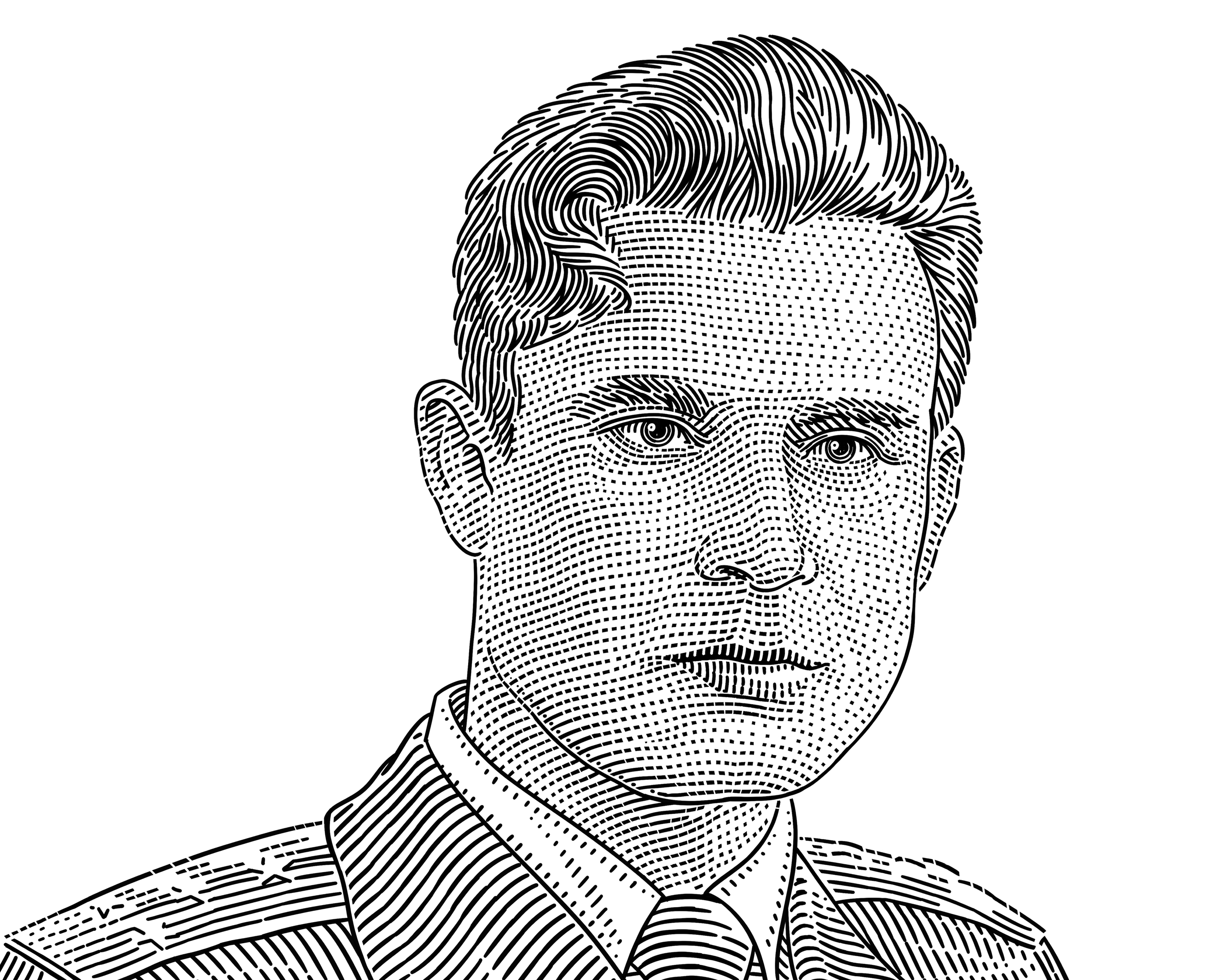Today marks the 42nd installment in a series of articles by HumanProgress.org titled Heroes of Progress. This bi-weekly column provides a short introduction to heroes who have made an extraordinary contribution to the well-being of humanity. You can find the 41st part of this series here.
This week, our hero is Vasili Arkhipov–a Soviet naval officer who refused to allow a Soviet nuclear strike on a U.S. aircraft carrier during the 1962 Cuban Missile Crisis. Arkhipov’s actions likely prevented an all-out nuclear war, the consequences of which would have included the deaths of millions, if not billions, of innocent people, a collapse of many nation states and their economies, and an enormous amount of environmental damage. Aptly, the U.S. National Security Archive has dubbed Arkhipov a man who “saved the world.”
Vasili Arkhipov was born on January 30, 1926, to a peasant family in Staraya Kupavna – a small town on the outskirts of Moscow. After a typical public-school education, Arkhipov enrolled in the Pacific Higher Naval School – a facility that trained Soviet naval officers in 1942. Arkhipov first saw military action during the Soviet-Japanese War in August 1945, when he served aboard a minesweeper. In 1947, Arkhipov graduated from naval school and went on to serve on submarine vessels in the Black Sea and the Baltic.
In 1961, Arkhipov was appointed as the executive officer of the USSR’s new nuclear ballistic missile submarine (K-19). During its maiden voyage, the submarine’s nuclear cooling system developed a leak that threatened to cause the nuclear reactor to melt down. In the face of a potential mutiny, Arkhipov backed the captain and ordered the engineering crew to develop a technical solution to avoid a nuclear meltdown. The crew were forced to build an emergency coolant system on the fly. The solution required many of the men to work in high levels of radiation for extended periods of time, and although the engineers managed to save the ship and prevent a meltdown, the entire crew, including Arkhipov were irradiated. Due to exposure to high levels of radiation, all the members of the engineering crew died within a month. Yet that momentous event pales in comparison to what Arkhipov experienced the following year.
On October 1, 1962, Arkhipov was made commodore of a flotilla of four submarines that had been ordered to travel from Russia to Cuba. Arkhipov was also appointed sub-commander of the B-59 attack submarine that he was traveling on. The B-59 had twenty-two torpedoes, one of which was nuclear and possessed roughly the same destructive power as the nuclear bomb that the United States dropped on Hiroshima in 1945. Unknown to the crew of the four submarines, the United States implemented a naval blockade of Cuba on October 4 and told the Soviets that U.S. forces would drop depth charges (explosive warning shots) on any Soviet submarine in Cuban waters to force the vessels to surface. Due to lack of radio communications, Moscow was unable to relay that information to Arkhipov’s crew.
On October 27, a group of eleven U.S. Destroyers and an American aircraft carrier, the USS Randolph, located Arkhipov’s submarine off the coast of Cuba and began pummeling the submarine with signaling depth charges. Arkhipov’s submarine was too deep underwater to receive any radio traffic, and with each depth charge causing the submarine to shake uncontrollably, those onboard did not know whether a war had already broken out. On board the submarine, the air conditioning system had broken and temperatures in some sections of the ship reached over 122 degrees Fahrenheit (50 degrees Celsius). The regeneration of air supply worked poorly, and the rising levels of carbon dioxide caused many of the weary crew, who had already been traveling onboard the ship for almost four weeks, to faint from overheating.
During that strenuous situation, the captain of the submarine, Valentin Savitsky, believed that the American navy was firing bombs on their ship and decided that war between the two countries had already broken out. Savitsky ordered the nuclear-tipped torpedo to be readied and aimed at the USS Randolph. The political officer onboard, Ivan Maslennikov, agreed with the captain’s decision. Usually, Russian submarines armed with nuclear weapons only required the permission of the captain and the political officer in order to launch their nuclear torpedo. However, due to Arkhipov’s position as commodore, the captain was also required to gain Arkhipov’s approval.
Arkhipov refused to approve the launch of the nuclear torpedo and an intense argument broke out among three officers. Later Soviet intelligence reports quote the captain as saying, “We’re gonna blast them now! We will die, but we will sink them all. We will not disgrace our navy.” However, Arkhipov refused to budge and argued that, as no orders had come from Moscow, such extreme measures would be ill-advised. Instead, he advised that the submarine should surface and contact the naval headquarters. Arkhipov was eventually successful in persuading the captain and, as the submarine rose to the surface, it was met by a U.S. destroyer which ordered it to immediately return to the Soviet Union.
As the American forces didn’t board the submarine or undertake any inspection, they were not aware that the submarine was armed with a nuclear torpedo. The U.S. navy, and indeed the wider public, only found out about the B-59’s nuclear capabilities and the full tale of Arkhipov’s actions in 2002, when the former belligerents met in Cuba for the 40th anniversary of the crisis. When discussing the Cuban Missile Crisis, Arthur Schlesinger, an American historian and former advisor John F. Kennedy, stated that “This was not only the most dangerous moment of the Cold War. It was the most dangerous moment in human history.”
Upon their return to Russia, the crew of the submarine were met with criticism from their superiors, as some officers viewed the act of surfacing as one of surrender. One admiral told Arkhipov “it would have been better if you’d gone down with your ship.” After the events of October 1962, Arkhipov continued his navy service. He was promoted to rear admiral in 1975 and became head of the Kirov Naval Academy. In 1982, he was promoted to vice admiral and retired a few years later. Arkhipov settled in a small town near Moscow and died on August 19, 1998 of kidney cancer that may have been caused by the radiation that he was exposed to while onboard the K-19 in 1961.

Had Arkhipov not been on that specific B-59 submarine that October in 1962 or had he given in to pressure from the other officers, the submarine’s nuclear torpedo would have vaporized the USS Randolph. That, notes Russian archivist Svetlana Savranskaya, would have started “a chain of inadvertent developments, which could have led to catastrophic consequences.” According to plans laid out by the Soviets and the United States, the likely first targets of a nuclear war would have been Moscow, London, airbases across the U.K. and troop concentrations in Germany. The next wave of bombs would have wiped out “economic targets” (i.e., civilian populations) across the world.
Arkhipov received little recognition during his lifetime, but to his wife Olga, Vasili was always a hero. In a 2012 PBS documentary titled The Man Who Saved the World, Olga Arkhipov said, “The man who prevented a nuclear war was a Russian submariner. His name was Vasili Arkhipov. I was proud and I am proud of my husband, always.” Thanks to Arkhipov, nuclear war was averted, and many lives were saved. For that reason, Vasili Arkhipov is our 42nd Hero of Progress.



